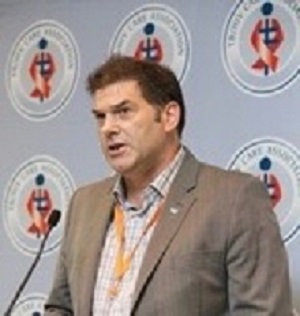
There is a strong need for greater awareness of pragmatic, inclusive approaches to drug use – which are proven to reduce the negative consequences of current policy and potential health consequences for both drug users and the communities in which they live.
This is according to Shaun Shelly, national PWUD (People Who Use Drugs) policy, advocacy and human rights manager for TB HIV Care Association, an organisation working to prevent, find and treat TB and HIV in communities.
There are an estimated 67,000 injecting drug users in South Africa, says Shelly, who is also a researcher in the department of family medicine at the University of Pretoria.
Internationally, people who inject drugs are 28 times more likely to be living with HIV than the general population (UNAIDS, 2014). In South Africa, HIV prevalence is lower among drug users, but will be a problem if not addressed, as 5%-10% of new HIV infections worldwide are due to needle-sharing (UNAIDS, 2013), he said.
Shelly was commenting on the 17 January arrest in Tshwane of a University of Pretoria social worker and two members of OUT (an organisation dedicated to building healthy and empowered lesbian, gay, bisexual and transgender communities) for distributing sterile water to drug users who inject drugs. (The case was removed from the roll.)
This outreach initiative was part of the Step Up Project, an HIV-prevention programme linked to the TB/HIV Care Association and aimed at people who inject drugs. The project is run by OUT Wellbeing and is supported by the Gauteng Department of Health and the University of Pretoria.
The Step Up Project includes handing out sterile injecting equipment in packs with water, gauze, alcohol swabs and the like; behaviour change interventions, support services, a drop-in centre and clinic, referrals to hospitals, information and information on antiretrovirals, HIV and hepatitis C testing, wound care and more.
Step Up Project coordinator, Nelson Medeiros, said: “The exclusion, stigma and lack of services for people who inject drugs increases their disease burden. The Step Up Project operates according to international best practice and guidelines endorsed by the Department of Health and the South African National AIDS Council.”
The World Health Organisation and the UN Office on Drugs and Crime report that similar programmes have been shown to reduce mortality, the incidence of HIV and hepatitis C and illicit drug use, he said. They also increase referrals and access to treatment programmes, health and social services; reduce strain on the public health care system; and decrease petty crime and antisocial behaviour to the benefit of the broader community.
“OUT Wellbeing is appreciative of the support received from government agencies following the arrest in Tshwane, but improved communication between departments and clear policy guidelines must be established to prevent similar unnecessary incidents in the future.”
Shelly said the Step Up project has the support of many individuals and organisations. There are memorandums of understanding with the provincial Departments of Health in every province it operates in and letters of support from SAPS, academic institutions and the South African National AIDS Council.
“While many understand the principles and imperatives of this ‘harm reduction’ approach, and the real issues on the ground, the stumbling block is that many people have set ideas based on popular belief. Few think critically about the issue.”
Research has shown that needle and syringe programmes reduce sharing of needles and unsafe injecting practices by up to 60%, decrease HIV transmission by up to 33%-42%, are cost-effective and do not increase frequency of injecting or drug use. However, the most controversial part of the project has been the needle and syringe component, says Shelly, citing a lack of clarity on the possession of syringes among some law enforcement officers.
Between 16 November 2015 and 15 February 2016, project beneficiaries reported 14 incidents of needles being broken; 78 cases of unused needles being taken; 36 cases of harm reduction packs being taken; 10 cases of arrest for possession of unused needles; and 12 cases of arrest for used needles.
“Our opinion is that we require high-level intervention to try and ensure that the barriers to service delivery are reduced or eliminated.”
These could include steps such as: presenting the data and information on harm reduction and the services currently offered and under development to the Parliamentary Technical Committee and Inter-Ministerial Committee; working closely with national SA Police Services to further communicate a clear position on the legality of the project and the possession of unused syringes, so that station and cluster commanders are not in doubt; a moratorium on arrests for the possession of used needles and syringes to increase return rates; developing and communicating a joint statement of support for harm reduction programmes that are evidence-based by the Central Drug Authority and Department of Health; and aligning current policies between different government departments so that there are no conflicts.
“Such measures will help create an enabling environment and help ensure that the potential harm of drug use is reduced and we can address the needs of people who are dependant drug users more effectively.”
